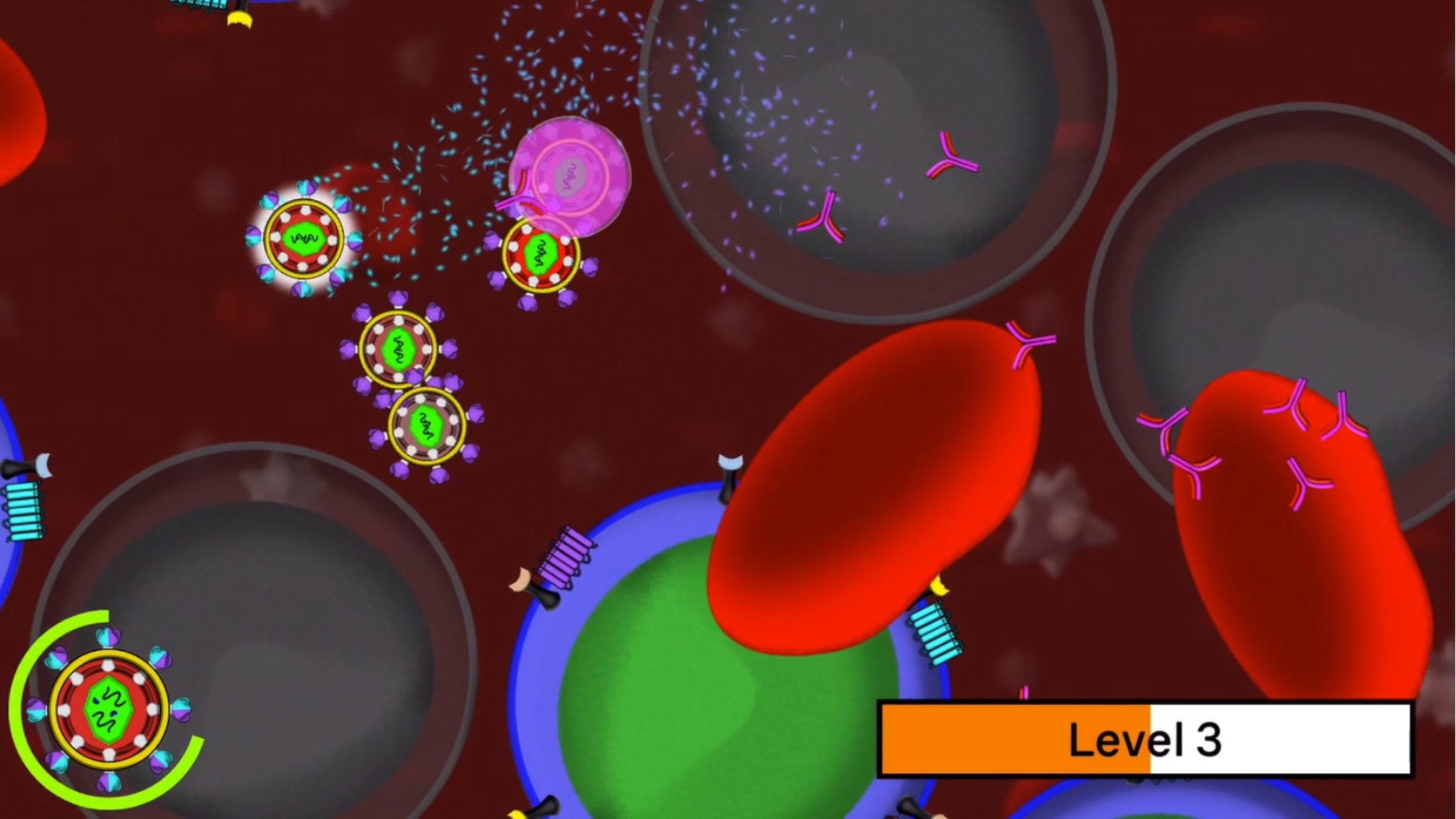Scientists and game designers show you what it’s like to be HIV

In the mobile game CD4 Hunter, players play as the virus HIV and have to find the right cells to bind to, while fending off red blood cells and attacking antibodies. The idea is to teach players how the virus targets the cells it uses to make copies of itself. (Vincent Mills and Andrew Bishop/Drexel University)
Ever wonder what it feels like to be a virus?
Earlier this summer, video game artists and scientists at Drexel University released a mobile game where you play against humans as HIV, the virus that can lead to AIDS.
The goal is to teach science to medical school students, and maybe even help patients. It’s part of a growing group of scientists making scientifically-accurate digital, board, and card games to engage players, as reported in Nature.
Carla Brown, the game designer and a postdoctoral fellow at the department of microbiology and immunology at Drexel University, explains that in the game CD4 Hunter, you play as the HIV virus.
CD4 cells are the white blood cells that HIV uses to make copies of itself.
“You’re in the bloodstream, you’re in a mine field of cells and you’re looking for the perfect target cell that has the right receptors to infect, and you’re replicating and you’re trying to survive against the immune system.”
This is the first step in the complex replication process for the virus, where it has to find the right target cells.
The idea is to make a fun teaching tool to go with lectures, textbooks, and journal articles, Brown said.
“What games do, they allow you to step into the shoes of the microbe or the character and really personify the whole process, so rather than kind of learning from a rendition of someone else’s knowledge, you’re actually able to experience the science for yourself.”
They plan to study how effective the game is as a teaching tool, and refine it. For example, the virus HIV mutates, so they plan to add a feature where the player can mutate their HIV virus. They are also thinking about including other stages of the HIV replication and infection cycle, such as how it might handle anti-HIV drugs.
The game could be useful outside a classroom as well.
In late August, the team will be bringing the game to Camp Dreamcatcher, in Oxford, Pa. Dreamcatcher supports young people coping with HIV/AIDS.
Another game designed to help young people cope with cancer has been shown to help patients stick to their drug-taking regimen, in a randomized trial published in the journal Pediatrics in 2008.
Brown, the game’s designer, is also the founder and CEO of Game Dr., a game company that develops educational science and health games.
CD4Hunter, the HIV game, took a year to develop, and the team at Drexel plans to make more games with a similar development time. One possible future release is a game about malaria.
WHYY is your source for fact-based, in-depth journalism and information. As a nonprofit organization, we rely on financial support from readers like you. Please give today.

